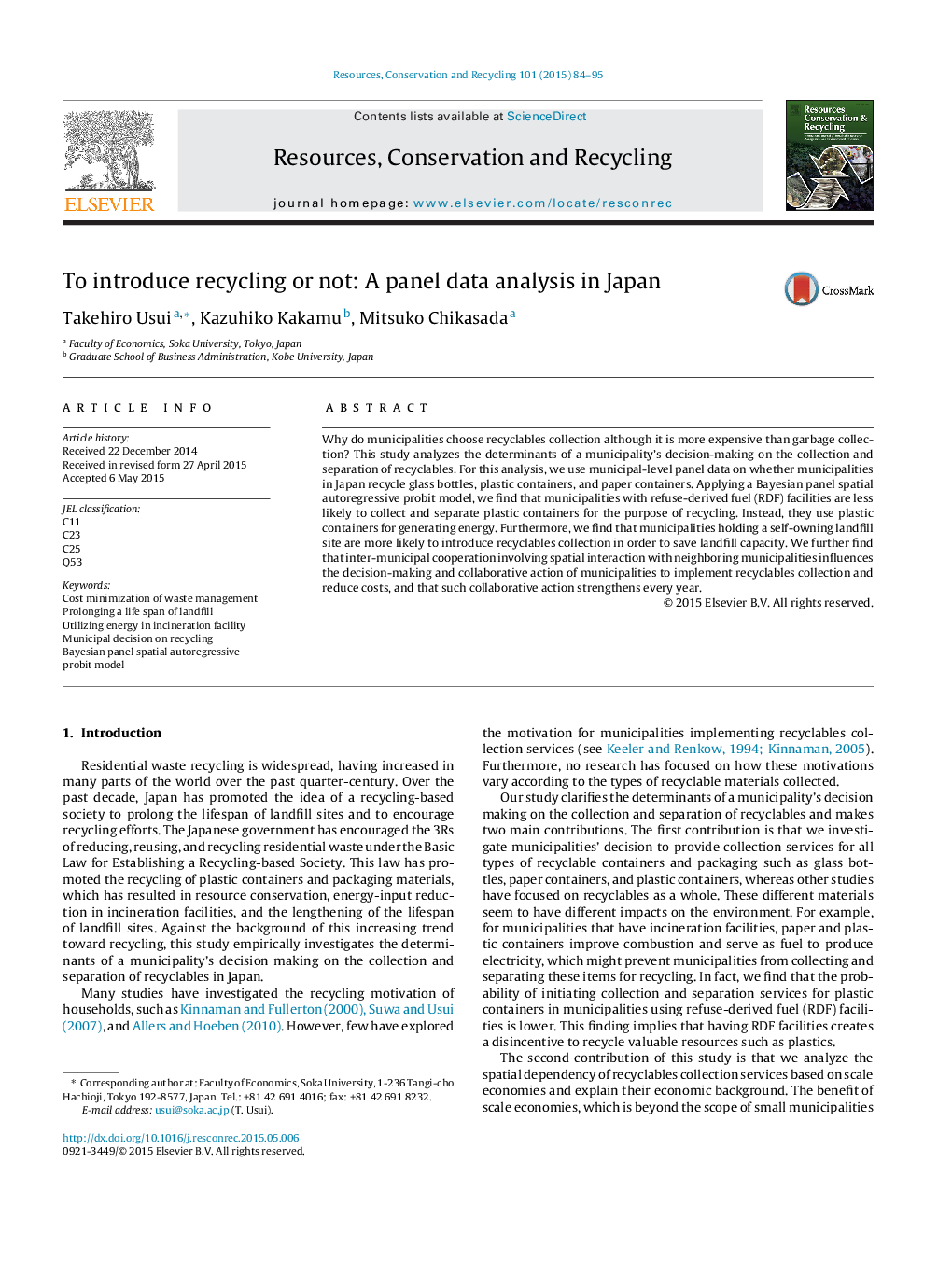| Article ID | Journal | Published Year | Pages | File Type |
|---|---|---|---|---|
| 7495107 | Resources, Conservation and Recycling | 2015 | 12 Pages |
Abstract
Why do municipalities choose recyclables collection although it is more expensive than garbage collection? This study analyzes the determinants of a municipality's decision-making on the collection and separation of recyclables. For this analysis, we use municipal-level panel data on whether municipalities in Japan recycle glass bottles, plastic containers, and paper containers. Applying a Bayesian panel spatial autoregressive probit model, we find that municipalities with refuse-derived fuel (RDF) facilities are less likely to collect and separate plastic containers for the purpose of recycling. Instead, they use plastic containers for generating energy. Furthermore, we find that municipalities holding a self-owning landfill site are more likely to introduce recyclables collection in order to save landfill capacity. We further find that inter-municipal cooperation involving spatial interaction with neighboring municipalities influences the decision-making and collaborative action of municipalities to implement recyclables collection and reduce costs, and that such collaborative action strengthens every year.
Related Topics
Physical Sciences and Engineering
Energy
Renewable Energy, Sustainability and the Environment
Authors
Takehiro Usui, Kazuhiko Kakamu, Mitsuko Chikasada,
